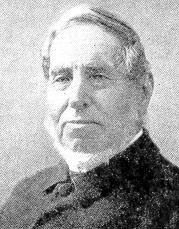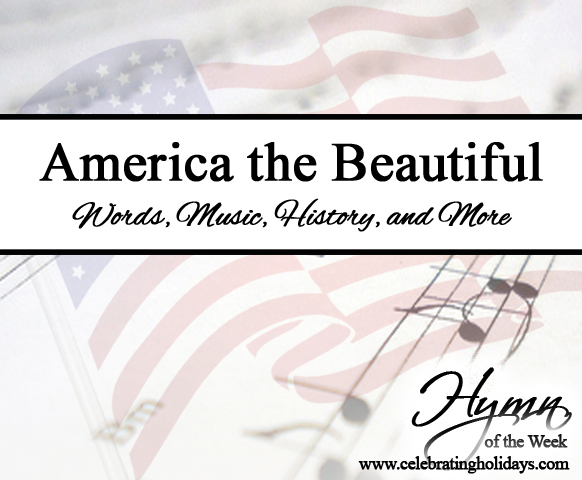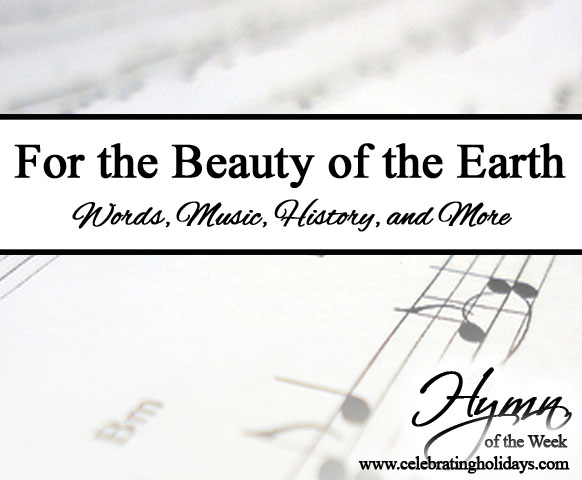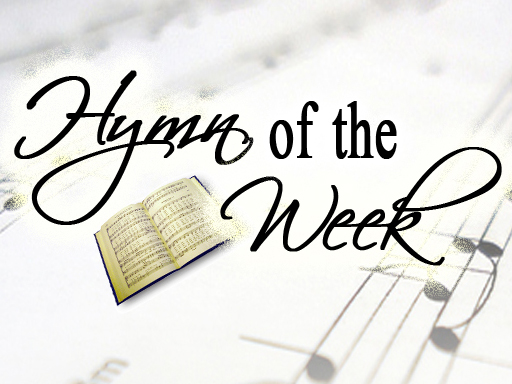My Country,’Tis of Thee
This page includes a lyric video, history, sheet music, and other resources for the song “My Country,’Tis of Thee.” Enjoy!
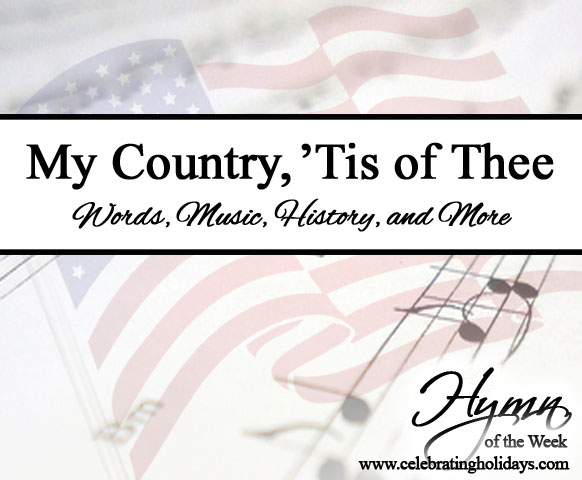
Enjoy this You Tube video, performed by Lee Greenwood, with lyrics for “My Country,’Tis of Thee.”
History of “My Country ‘Tis of Thee”
Words by Samuel Francis Smith (1808-1895), Published in 1831
Samuel was born in Boston in 1808 and was educated at the Boston Latin School. He studied at both Harvard University and Andover Theological Seminary before becoming a Baptist pastor. While pastoring, he was active in supporting and promoting missions and even served for a time as a professor of modern languages in Waterville, Maine.
Samuel also had a keen interest in music, and his friend Lowell Mason, a famous composer and editor of American hymnals, looked to Samuel for help in translating from a set of German hymnals. In one of the hymnals, Samuel came across the tune for “My Country, ‘Tis of Thee.” He noticed that the words were patriotic in nature and records:
“I instantly felt the impulse to write a patriotic hymn of my own, adapted to the tune. Picking up a scrap of waste paper which lay near me, I wrote at once, probably within half an hour, the hymn ‘America’ as it is now known everywhere. The whole hymn stands today as it stood on the bit of waste paper.”1
The hymn was first sung at an Independence Day celebration by the Boston Sabbath School Union, July 4, 1831, and was first published in Choir, or Union Collection of Church Music, 1832, by Lowell Mason.2 The song’s popularity spread quickly, and at a Harvard class reunion, Samuel’s classmate, Oliver Wendell Holmes, wrote of him:
“There’s a nice youngster of excellent pith,
Fate tried to conceal him by naming him Smith;
But he shouted a song for the brave and the free,
Just read on his medal, My country, of thee.”3
Samuel went on to write many more hymns and assisted with compiling The Psalmist (1843) – the most widely used Baptist hymnal of its day in America.4
On Samuel’s 80th birthday, Oliver Wendell Holmes wrote another poem for him:
“Full many a poet’s labored lines
A century’s creeping waves shall hide—
The verse a people’s love enshrines
Stands like a rock that breasts the tide.
“Time wrecks the proudest piles we raise,
The towers, the domes, the temples fall.
The fortress crumbles and decays—
One breath of song outlasts them all.”5
Music “America” in Thesaurus Musicus, Published in 1744
The tune for “America” seems to have originated in Europe. It was first printed in Thesaurus Musicus, 1744 and then in Gentleman’s Magazine, 1745 in England where it appeared with the words “God save great George, our King” and is now sung with the words “God save the Queen.”6 Interestingly, the tune was used as a national anthem in a variety of European countries, and it was even known in America long before Samuel wrote his famous words.7 You can learn more about the tune at the Library of Congress.
Additional Resources for “My Country,’Tis of Thee”:
Sheet Music (PDF Compliments of Hymnary.org)
Guitar Chords (Links to Ultimate Guitar)
Visit Hymnary.org or Hymn Time.com for more on this hymn.
See our Hymn of the Week page for a list of the hymns that are included on this site.
This page was created by:

We welcome your ideas! If you have suggestions on how to improve this page, please contact us.
You may freely use this content if you cite the source and/or link back to this page.
Sources:
1 Sankey, Ira David. My Life and the Story of the Gospel Hymns. Harper & Brothers, 1906. p. 196.
2 “My Country, ‘Tis of Thee,” Hymn Time.com.
3 Reynolds, William Jensen. Hymns of Our Faith: A Handbook for the Baptist Hymnal. Broadman Press, 1964, p. 409.
4 Ibid.
5 “Samuel Francis Smith,” Hymn Time.com.
6 Reynolds, William Jensen. Hymns of Our Faith: A Handbook for the Baptist Hymnal. Broadman Press, 1964, p. 126.
7 “My Country, ‘Tis of Thee,” Library of Congress.
